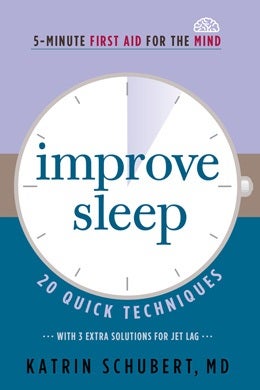6 Techniques That Will Give You The Best Sleep Of Your Life (With No Pills!)
Good sleep takes practice.
 iStock
iStock You need more sleep.
We all do. As a society, we don’t value the benefits of sleep enough, even though recent research has argued that sleep deprivation might be our next major public health crisis.
The hard part is — even when we KNOW that we need more rest, it isn’t always easy to get it.
We might finally accomplish the impossible and find ourselves in bed at 10 pm one night, but then we just lay there. We’re exhausted, we’re so desperate to sleep, but it never comes.
Instead, we sit there, unable to switch our brains off and watching old episodes of Veep on our phones until 3 am. It feels like the cruelest trick our body can play on us — we know it needs sleep and yet it keeps that rejuvenating rest just out of our reach.
Fortunately, you can do something about that. You can actually TEACH yourself to sleep better… without using pills.
And the best place to start is a fascinating new book by Katrin Schubert M.D. (which I can’t recommend enough) titled Improve Sleep: 20 Quick Techniques.
In the book, Schubert validates our need for sleep — it really is the healthiest thing you can do for your body — and walks us through various tips, techniques, and strategies that make it so, SO much easier to fall asleep.
Not to be hyperbolic, but I’ve been trying the techniques laid out in the book for about a month now and I’ve had some of the best sleep of my life. I actually fall asleep when I get into bed now, rather than browsing YouTube and worrying about work all night.
(Schubert also has books on how to Relieve Stress and Reduce Cravings, which are just as pragmatic and actionable.)
Improve Sleep has a ton of fantastic advice, but, to give you an idea of what you can do to feel significantly more rested in the meantime, here are SIX of Schubert’s top tips for getting a really, really amazing night’s sleep. (The full book has a LOT more.)
If you want to cure insomnia and restlessness every night at bedtime, THIS is what you need to do to start falling asleep faster.
1. Get at least twenty minutes of natural sunlight each day.
Light exposure during the day helps your body follow a normal sleep-and-wake cycle.
Natural sunlight regulates your body’s production and release of melatonin, the hormone that is excreted at night to induce the natural sleep cycle.
2. Reduce the amount of fluids you drink in the evening.
Drinking water throughout the day is important for your body’s health. Consuming liquids later in the evening can disrupt your sleep.
You will feel more rested in the morning if you do not have to get up at night to answer nature’s call.
Everyone hears that they should drink more water throughout the day — and you should. But be mindful of when you are drinking that water.
If you are consuming liquids late in the day and you find yourself unable to sleep through the night because you are regularly getting up to empty your bladder, then you might have found an easy way to improve the quality of your sleep.
3. Reduce your exposure to any light source with a white or blue hue at least two hours before bedtime.
This means that for the best night’s sleep, when it is getting close to bedtime, you need to trade in the time you spend in front of a screen for something like time spent with a good, old-fashioned book.
Screens on TVs, laptops, and smartphones emit the types of light that will keep you up. Instead of staring at a screen, try unwinding with relaxation or breathing exercises, soft and relaxing music, or just by spending time with your loved ones.
Bright white-blue lights keep us wired! So avoid them close to bedtime.
4. Take magnesium!
Magnesium can help you sleep in so many ways. It helps relax your muscles and your brain.
While adding a magnesium supplement to your routine can be very helpful, so is just mindfully adding some magnesium-rich foods to your diet.
Almonds, cashews, pumpkin seeds, leafy green vegetables, avocados, and bananas all contain high levels of this vital mineral.
Another great way to expose your body to magnesium late in the day and get ready for rest is by adding Epsom salts to your bath…
5. Keep cortisol levels low.
Your body makes a stress hormone called cortisol. High stress levels elevate our cortisol levels.
High levels of cortisol in our bodies keep us awake because cortisol’s release is a way our bodies enable alertness.
As night approaches, keep your cortisol levels managed by reducing your overall stress levels.
Maybe that means not listening to the news, watching thrillers, or tackling disagreements toward the end of the day. You can’t drift off into dreamland if your body is full of cortisol.
6. Take a nap.
Fatigue will stop you from sleeping well at night.
A short rest or nap will rejuvenate you and give you enough energy to finish your day.
Researchers and nap aficionados recommend naps of no longer than twenty minutes; otherwise, you may feel groggy afterward.
This is just a taste of the awesome advice you can get Improve Sleep: 20 Quick Techniques. If you want to know more about how you can completely revolutionize the way you sleep, you should seek it out.
Created in partnership with Hazelden Publishing.
YourTango may earn an affiliate commission if you buy something through links featured in this article.

